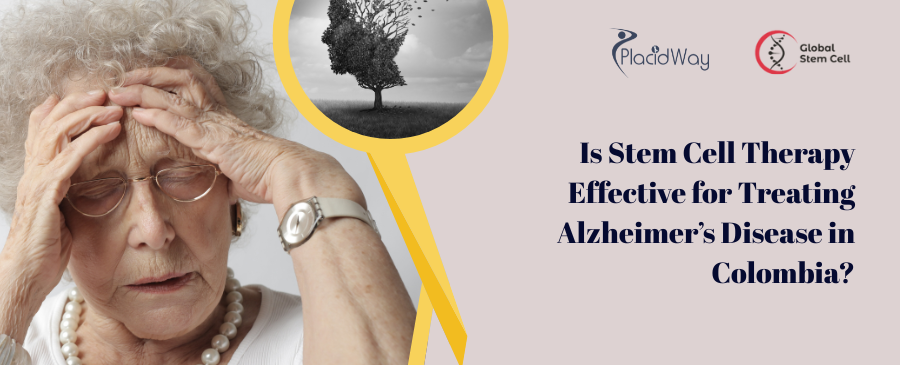Revolutionizing Alzheimer’s Treatment: The Incredible Potential of Stem Cell Therapy
Table of Content
Alzheimer’s disease, a devastating and progressive neurological disorder, affects millions of people worldwide. As we strive to find the best treatment approaches for this condition, it is essential to understand the unique nature of Alzheimer’s and explore the multifaceted strategies available.
In this persuasive article about What is the Best Treatment for Alzheimer’s Disease? We will delve into the current and emerging treatments for Alzheimer’s disease, highlighting the importance of early intervention, holistic care, and promoting brain health. By presenting unique insights and evidence-based information, we aim to empower individuals, caregivers, and healthcare professionals in making informed decisions and advocating for the best treatment options for those affected by Alzheimer’s disease.
What is the Best Treatment for Alzheimer’s Disease
There are various treatment approaches available for individuals with Alzheimer’s disease. These approaches aim to manage symptoms, improve cognitive function, enhance quality of life, and provide support for both individuals with Alzheimer’s and their caregivers. The current treatment approaches for Alzheimer’s disease include:
Medications for Symptom Management
Medications are commonly prescribed to manage the symptoms of Alzheimer’s disease. The primary classes of medications used are cholinesterase inhibitors and memantine.
Cholinesterase inhibitors, including donepezil, rivastigmine, and galantamine, work by increasing the levels of acetylcholine, a neurotransmitter involved in memory and learning. These medications can help improve cognitive function, memory, and daily functioning in some individuals with Alzheimer’s.
Memantine is another medication used in the treatment of Alzheimer’s. It works by regulating glutamate, a neurotransmitter involved in brain cell communication. Memantine can help improve cognition, attention, and daily functioning, especially in individuals with moderate to severe Alzheimer’s.
Non-Pharmacological Interventions
Non-pharmacological interventions play a crucial role in managing Alzheimer’s disease. These interventions focus on providing support, enhancing daily functioning, and improving overall well-being. Some common non-pharmacological interventions include:
- Cognitive Stimulation: Engaging in activities that stimulate the mind, such as puzzles, memory games, and reminiscence therapy, can help maintain cognitive abilities and improve overall mental well-being.
- Physical Exercise: Regular physical exercise has been shown to have numerous benefits for individuals with Alzheimer’s, including improving cognitive function, reducing behavioral symptoms, and enhancing physical health.
- Social Engagement: Maintaining social connections and participating in social activities can help individuals with Alzheimer’s feel connected, reduce feelings of isolation, and support emotional well-being.
Nutritional Support: A balanced diet rich in fruits, vegetables, whole grains, lean proteins, and healthy fats can contribute to overall well-being and support brain health.
Supportive Care and Lifestyle Modifications
Supportive care and lifestyle modifications are essential components of Alzheimer’s treatment. These approaches focus on creating a supportive and safe environment, providing assistance with daily activities, and addressing the unique needs of individuals with Alzheimer’s. Some aspects of supportive care and lifestyle modifications include:
- Caregiver Support: Providing support and resources for caregivers is crucial, as caring for someone with Alzheimer’s can be physically and emotionally challenging. Support groups, respite care services, and caregiver education programs can help caregivers navigate the demands of caregiving and maintain their own well-being.
- Environmental Modifications: Making modifications to the living environment, such as removing tripping hazards, using labels and cues for orientation, and ensuring proper lighting, can help individuals with Alzheimer’s navigate their surroundings more safely.
- Routine and Structure: Establishing a consistent daily routine can help individuals with Alzheimer’s feel more secure and reduce anxiety. Maintaining a structured environment and providing clear cues can support memory and daily functioning.
- Emotional Support: Emotional support and counseling can help individuals with Alzheimer’s and their families cope with the emotional impact of the disease, address feelings of sadness or anxiety, and develop effective strategies for managing stress.
It is important to note that treatment plans should be individualized based on the specific needs and stage of Alzheimer’s disease. Regular monitoring, reassessment, and adjustment of treatment approaches are essential to ensure optimal care and address the changing needs of individuals with Alzheimer’s. Additionally, ongoing research and clinical trials are continuously exploring new treatment options and interventions for Alzheimer’s disease, offering hope for improved outcomes in the future.
Stem Cell Treatment for Alzheimer’s Disease
Stem cell therapy is an emerging field of research that holds promise for the treatment of various neurodegenerative disorders, including Alzheimer’s disease. Stem cells have the potential to differentiate into different cell types and replace damaged or lost cells in the brain. While still in the experimental stages, stem cell treatment for Alzheimer’s disease has shown encouraging results in preclinical and early clinical trials. Here is an overview of the potential of stem cell therapy for Alzheimer’s:
Types of Stem Cells
There are different types of stem cells that can be used in Alzheimer’s research, including:
- Embryonic Stem Cells: These stem cells are derived from embryos and have the ability to differentiate into any cell type in the body.
- Neural Stem Cells: These stem cells are found in the brain and have the potential to generate neurons and support cells.
- Induced Pluripotent Stem Cells (iPSCs): These stem cells are created by reprogramming adult cells, such as skin cells, to an embryonic-like state. iPSCs can then be differentiated into various cell types, including neurons.
Potential Mechanisms of Action of Stem Cell Treatment
Stem cells have the potential to impact Alzheimer’s disease through various mechanisms:
- Cell Replacement: Stem cells can differentiate into neurons or support cells, potentially replacing damaged or lost cells in the brain.
- Neurotrophic Effects: Stem cells secrete neurotrophic factors that promote the survival and growth of existing neurons, potentially protecting them from further damage.
- Modulation of Inflammation: Stem cells can modulate the inflammatory response in the brain, reducing neuroinflammation, which is a characteristic feature of Alzheimer’s.
- Promotion of Neuroplasticity: Stem cells may enhance neuroplasticity, the brain’s ability to reorganize and form new connections, which could potentially support cognitive function.
Challenges and Considerations
While stem cell therapy for Alzheimer’s disease shows promise, there are several challenges and considerations to address:
- Safety and Efficacy: Further research is needed to establish the safety and long-term efficacy of stem cell treatments for Alzheimer’s. Rigorous clinical trials and ongoing monitoring are necessary to ensure the safety and effectiveness of these therapies.
- Optimal Delivery and Integration: Determining the best methods for delivering stem cells to the brain and ensuring their proper integration into existing neural networks is a critical area of research.
- Ethical Considerations: The use of embryonic stem cells raises ethical concerns, and the development of alternative cell sources, such as iPSCs, has been pursued to address these concerns.
- Regulatory Approval: Stem cell therapies for Alzheimer’s disease are currently not approved by regulatory agencies and are considered experimental. It will take time and extensive research to gain regulatory approval and widespread clinical use.
Current Status and Future Directions
Stem cell therapy for Alzheimer’s disease is still in the early stages of development. Preclinical studies and early-phase clinical trials have demonstrated some promising results, including improved cognitive function and disease-related biomarkers. However, large-scale clinical trials are needed to establish the safety, efficacy, and long-term effects of stem cell treatments for Alzheimer’s.
As the field progresses, researchers are exploring different approaches, such as optimizing cell types, refining delivery methods, and combining stem cell therapy with other treatments. The ultimate goal is to develop safe and effective stem cell-based interventions that can slow or halt the progression of Alzheimer’s disease and improve the quality of life for affected individuals.
It is important to note that stem cell therapies for Alzheimer’s disease are still considered experimental and are not widely available as standard treatments. Individuals interested in stem cell therapy should consult with healthcare professionals and consider participating in clinical trials, which provide access to these novel therapies under controlled and monitored conditions.
Emerging and Experimental Treatments
While current treatments for Alzheimer’s disease focus on symptom management and support, ongoing research is exploring emerging and experimental approaches that target the underlying mechanisms of the disease. These treatments aim to modify the course of Alzheimer’s, slow disease progression, and potentially provide more effective interventions. Some of the emerging and experimental treatments being investigated for Alzheimer’s disease include:
Disease-Modifying Therapies
Disease-modifying therapies are designed to target the underlying processes that contribute to Alzheimer’s disease. They aim to slow down or halt the progression of the disease by addressing specific abnormalities in the brain, such as beta-amyloid plaques and tau protein tangles.
One approach being investigated is the development of anti-amyloid drugs that aim to reduce the accumulation of beta-amyloid plaques in the brain. These drugs, such as monoclonal antibodies and beta-secretase inhibitors, target different steps in the production, aggregation, or clearance of beta-amyloid. Clinical trials are ongoing to evaluate their safety and efficacy in slowing cognitive decline and disease progression.
Another approach focuses on tau protein, which forms tangles in the brains of individuals with Alzheimer’s. Researchers are exploring therapies that target tau, aiming to prevent its abnormal accumulation and spread in the brain. These treatments are still in the early stages of development and require further investigation.
Immunotherapies and Vaccines
Immunotherapies and vaccines are being explored as potential treatments for Alzheimer’s disease. Immunotherapies involve using antibodies or other immune-based approaches to target and clear beta-amyloid plaques from the brain. These treatments aim to stimulate the immune system to recognize and eliminate beta-amyloid, potentially slowing down disease progression. Clinical trials are underway to assess their safety and efficacy.
Vaccines for Alzheimer’s are also being studied. These vaccines aim to stimulate an immune response against beta-amyloid, preventing its accumulation and reducing the associated brain damage. Early-stage clinical trials have shown promising results, but more research is needed to determine their long-term effects and overall efficacy.
Precision Medicine and Personalized Approaches
Precision medicine focuses on tailoring treatments to individual characteristics, such as genetic factors and biomarkers. Personalized approaches aim to identify specific subtypes of Alzheimer’s and develop targeted interventions based on the individual’s unique profile.
Genetic testing can identify certain gene variations associated with a higher risk of developing Alzheimer’s. This information can help guide treatment decisions and potentially identify individuals who may benefit from specific therapies. Biomarkers, such as beta-amyloid or tau levels measured through imaging or cerebrospinal fluid analysis, can provide insights into the presence and progression of Alzheimer’s disease. These biomarkers may be used to monitor treatment response or identify individuals suitable for clinical trials.
By understanding the underlying genetic and biological factors that contribute to Alzheimer’s disease, precision medicine and personalized approaches hold promise for more targeted and effective interventions. However, further research is needed to validate these approaches and determine their clinical applicability.
It is important to note that while these emerging treatments show promise, they are still undergoing rigorous evaluation in clinical trials. It takes time to ensure their safety, efficacy, and long-term effects. Continued research, collaboration, and participation in clinical trials are crucial to advancing our understanding and finding breakthrough treatments for Alzheimer’s disease.
Promoting Brain Health and Risk Reduction
While there is currently no definitive cure for Alzheimer’s disease, promoting brain health and reducing the risk of developing the disease are essential goals. Research suggests that certain lifestyle factors and healthy habits may contribute to brain health and potentially reduce the risk of cognitive decline. Here are some strategies for promoting brain health and risk reduction:
Regular Physical Exercise:
Engaging in regular physical exercise has been linked to various cognitive benefits. Physical activity promotes healthy blood flow to the brain, stimulates the growth of new neurons, and enhances synaptic connections. Aim for at least 150 minutes of moderate-intensity aerobic exercise per week, along with strength training exercises.
Healthy Diet:
Maintaining a balanced and nutritious diet is crucial for brain health. Focus on consuming a variety of fruits, vegetables, whole grains, lean proteins, and healthy fats. Limit the intake of processed foods, saturated fats, and added sugars. A diet rich in antioxidants, vitamins, and minerals supports brain function and overall well-being.
Mental Stimulation:
Challenging your brain with mentally stimulating activities can help promote cognitive reserve and protect against cognitive decline. Engage in activities that require critical thinking, problem-solving, memory recall, and learning new skills. Reading, puzzles, playing musical instruments, learning a new language, or engaging in hobbies can all contribute to brain health.
Social Engagement:
Maintaining social connections and engaging in social activities has been associated with better cognitive function and a reduced risk of dementia. Stay connected with family, friends, and your community. Participate in social events, join clubs or organizations, and volunteer. Social interaction provides cognitive stimulation, emotional support, and a sense of belonging.
Quality Sleep:
Adequate sleep is essential for overall brain health. During sleep, the brain consolidates memories, clears toxins, and restores cognitive function. Aim for 7-8 hours of uninterrupted sleep each night. Establish a regular sleep routine, create a comfortable sleep environment, and practice good sleep hygiene habits.
Stress Management:
Chronic stress can have negative effects on brain health. Engage in stress-reducing activities such as mindfulness meditation, deep breathing exercises, yoga, or engaging in hobbies that you enjoy. Find healthy coping mechanisms to manage stress and promote emotional well-being.
Heart-Healthy Lifestyle:
There is a strong link between cardiovascular health and brain health. Adopting a heart-healthy lifestyle can also promote brain health. Maintain healthy blood pressure, cholesterol levels, and blood sugar levels. Avoid smoking and limit alcohol consumption. These measures contribute to overall well-being and reduce the risk of developing Alzheimer’s and other related conditions.
It’s important to note that while these strategies may help reduce the risk of cognitive decline, they do not guarantee complete prevention of Alzheimer’s disease. However, adopting a brain-healthy lifestyle can contribute to overall well-being, improve cognitive function, and potentially reduce the risk of developing the disease. It is always recommended to consult with healthcare professionals for personalized advice and guidance.
Final Thought
Stem cell therapy holds promise as a potential treatment for Alzheimer’s disease. While still in the experimental stages, research in this field is advancing and showing encouraging results. Stem cells have the potential to replace damaged cells, provide neuroprotective effects, and modulate the underlying disease processes in Alzheimer’s. However, it is important to approach stem cell therapy with caution and make informed decisions.
It is crucial to consult with medical professionals who specialize in Alzheimer’s and stem cell research to fully understand the potential risks, benefits, and limitations of stem cell treatment. Participating in well-designed clinical trials can provide access to these therapies while contributing to scientific knowledge. It is important to be wary of unproven treatments offered outside of regulated clinical trials and to rely on credible sources of information.
Additionally, comprehensive care and support, including managing symptoms, emotional support, and lifestyle modifications, remain fundamental in the overall management of Alzheimer’s disease. While stem cell therapy shows promise, it is just one avenue of research in the quest to develop effective treatments for Alzheimer’s.
Continued research, collaboration, and participation in clinical trials are essential to advancing our understanding and finding breakthrough treatments for Alzheimer’s disease. With further scientific advancements, stem cell therapy and other emerging treatments may play a significant role in improving the lives of individuals with Alzheimer’s and their families.







